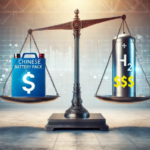Waste Not, Want Not: Effective Policies for Reducing Waste and Promoting Recycling
Introduction
The world is facing an unprecedented crisis of waste management. The staggering amount of waste generated daily, coupled with the depletion of natural resources, is a pressing concern that demands immediate attention. The notion of “waste not, want not” has become a fundamental principle in addressing this issue. In this article, we will explore effective policies for reducing waste and promoting recycling, highlighting the importance of sustainable practices and collaborative efforts.
Understanding the Problem
The sheer magnitude of waste generated globally is staggering. According to the World Bank, the world produces over 2 billion tons of municipal solid waste every year, with the average person generating around 4.4 pounds of waste daily. This figure is projected to increase by 2025, resulting in significant environmental, economic, and health impacts. The most pressing concern is the loss of valuable resources, including energy, water, and land, as waste is dumped or incinerated instead of being properly managed.
Proper Waste Segregation and Separation
Effective waste management begins with proper segregation and separation. Implementing a three-tiered approach:
*
Waste Segregation
*
Organic and Inorganic Waste Segregation
*
Hazardous Waste Segregation
ensures that waste is handled and processed according to its composition. This approach allows for efficient and effective recycling, reducing the amount of waste sent to landfills and minimizing environmental harm.
Recycling: A Vital Component of Sustainable Waste Management
Recycling is a crucial aspect of reducing waste and promoting sustainability. It not only conserves natural resources but also helps to reduce greenhouse gas emissions, saves energy, and mitigates the impact of climate change. Governments, corporations, and individuals must work together to create a culture of recycling, encouraging the reuse and recycling of materials, and investing in technologies that enable the production of high-quality recycled materials.
Extended Producer Responsibility (EPR) and Packaging Waste Management
EPR is a policy that holds producers responsible for the waste generated by their products. By making manufacturers responsible for the waste generated by their products, EPR incentivizes them to design sustainable products and production processes. Packaging waste management is a significant aspect of EPR, with many countries implementing deposit-refund systems, product take-back schemes, and extended producer responsibility for packaging waste.
Community Engagement and Education
Community engagement and education are vital in reducing waste and promoting recycling. Governments and organizations must work together to:
*
Raise Awareness
*
Foster a Sense of Ownership
*
Empower Communities to Take Action
This can be achieved through public campaigns, community outreach programs, and educational initiatives that promote the benefits of recycling, proper waste disposal, and sustainable living.
Conclusion
Waste not, want not is a clarion call to action, urging us to rethink our relationship with waste and the environment. Effective policies, such as proper waste segregation and separation, recycling, EPR, and community engagement, are the building blocks of a sustainable future. We must work together to reduce waste, promote recycling, and conserve natural resources, ensuring a cleaner, greener, and more sustainable tomorrow for generations to come.
FAQs
What is waste not, want not?
Waste not, want not is an ancient English proverb that means “use up your resources before they spoil” and is now being used as a call to action to encourage individuals and communities to reduce waste and promote recycling.
What are the benefits of proper waste segregation and separation?
Proper waste segregation and separation allow for efficient and effective recycling, reducing the amount of waste sent to landfills and minimizing environmental harm.
How can I contribute to waste reduction and recycling?
Individuals can start by implementing the “3Rs” – Reduce, Reuse, Recycle – in their daily lives, choosing products with minimal packaging, buying local and seasonal produce, and participating in community recycling initiatives.
What is EPR, and how does it affect waste management?
EPR (Extended Producer Responsibility) is a policy that holds producers responsible for the waste generated by their products, encouraging them to design sustainable products and production processes, thereby reducing waste and promoting recycling.
How can community engagement and education contribute to waste reduction and recycling?
Community engagement and education can foster a sense of ownership and empowerment, encouraging individuals to take action, participate in local recycling initiatives, and adopt sustainable lifestyles.






